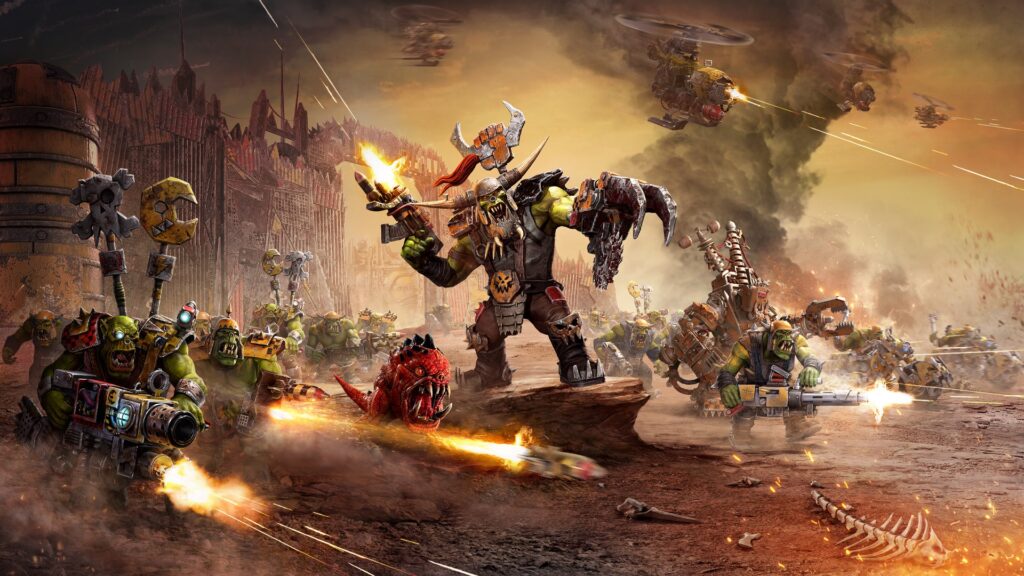
My son had a birthday last month. He usually asks for expensive gifts, but this year, he asked me to play a Warhammer game with him as his gift. My husband and kids are all into Warhammer. I am not. So much not. I have watched them play. I have decided that Warhammer 40,000 is not so much a name as it is foreshadowing of how much you are about to spend.
What I know about Warhammer is very minimal:
- Rolling a one is bad.
- It takes all day to play a game, sometimes more than one day.
- Nobody can know ALL the rules, so there is a book – for every army – of the rules for just that army.
- In order to play the game, you have to put all the pieces together, paint them, then make a complicated list of point values of each piece – and just to think that almost every kid who’s made it through 9th grade math said, “When am I ever going to use Algebra in real life?”
- No set of dice that you have ever used before is acceptable to use for your army – in other words, new army, new dice, and then for the rest of your life, you spend your entire paycheck to get more. (There are 13 sets of dice that are in the room I’m currently in and I know there are more elsewhere in this house.)
As I am writing this, I have not started the game yet, but I will record myself playing and I will share my experience and thoughts as I have them.
I have been able to put off playing this game for quite some time. At first, I had some pretty good excuses: I don’t have time. I can’t remember all those rules. I don’t have an army. Well, school’s out, so I have nothing to do right now. There is a whole book I get to reference for the rules. (Insert a sarcastic “oh, goodie…” here.) My husband spent months putting together and painting his old Space Marines for me – in the colors I chose, and then found coordinating dice! He even created their own name: the Grammar Lords. Their shoulder patches have an open book on them. My Chaplain got renamed a Librarian. Dammit! No more excuses.
Two hours in, we have not completed the game, and I’m not sure if we are even halfway through it, but there are so many rules that I am amazed anyone even plays this more than once, kind of like booking a follow-up appointment for a bikini wax. The fact that my son, who is on the autism spectrum, loves to info-dump isn’t helping. He is hitting me with rules and technicalities left and right. It is so much to take in.
The strange thing is I realized part of the way through this that is almost exactly like Star Wars Imperial Assault, which I love to play. But for whatever reason, I find myself very bored with this game. So far, while my son was spouting off things like “AP minus four and a toughness of 8” (we will circle back around to the word “toughness” later), I noticed a dust bunny under my recliner I hadn’t seen before, I came up with a solution to how to update my chandelier, and for the first time, I realized how many books I own that I have not yet read. Also, my table makes a sound when we lean on one corner. I am not like this during Imperial Assault, so why this?
We had to take a three-and-a-half-hour break to take care of real life. During this time, I was able to ponder things like, “Who came up with this math? It’s a cross between Common Core and Quantum physics,” and the word “toughness.” Toughness is a quality that describes things with a hard outer shell, so I can see why that would be the first word someone would have come up with to describe how difficult it is to take down that individual. However, I realized throughout the game that it really meant the resilience of that individual, which gives me a different mental image. I know this is splitting hairs, but as a writer, I question the clarity of its usage here.
Interestingly, I was slightly more invested after the break. Eventually, I was able to recall certain things, like the name of more than just one of my miniatures, where to find the rules and the statistics of each figure or squad. While this made the game somewhat more fluid and therefore more enjoyable, sort of like when you stop bobbing up and down and get into a groove while riding a horse, this is not to say I became an expert (or even a good) player. I won the game, but only because my son kept suddenly “remembering” rules as we went. I’m 98% certain that he forgot on purpose, just to ensure I would win. (By the way, if you go to a retail store and you play a demo game, you will win, no matter what.)
Initial impression: this is probably a good game for people who can hyperfocus and can do math that does not come from this realm. It is also for people who can remember stats well. If I enjoyed strategy games more, could embrace math and grammar that make no sense to me, and had a clone who could do other real-life things while I played, I would play this game every moment I could. However, I believe I now know why it is called Warhammer 40,000 (the number of hours it felt like it took me to figure out what I was doing) and Chaos (how the math worked). In other words, I loved spending the day with my son. My husband enjoys playing this with my son. While they have their bonding time, I will be doing something different.
End result: my husband talked me into playing HIM instead of my son. We started with a full army, but wound up playing one squad each. This made a difference in my understanding of the game. It was faster, I learned the skills that particular squad had and learned where to look to find the numbers for this mysterious math that I was pretty certain my kid was making up previously. Next time I play (yes, I have plans to do it again), I will use the squad I have become familiar with and one additional squad and/or character. Then, we later add a third and so on until I can play with a whole army.
My advice: know what your learning style is. Play with someone who understands your learning style and can be patient with you. Good news: you don’t have to know everything about everything when you begin. You can’t be a beginner and an expert at the same time. Take it slow if you need to. Mostly, have fun. Happy gaming!
By Jenn Andersson
